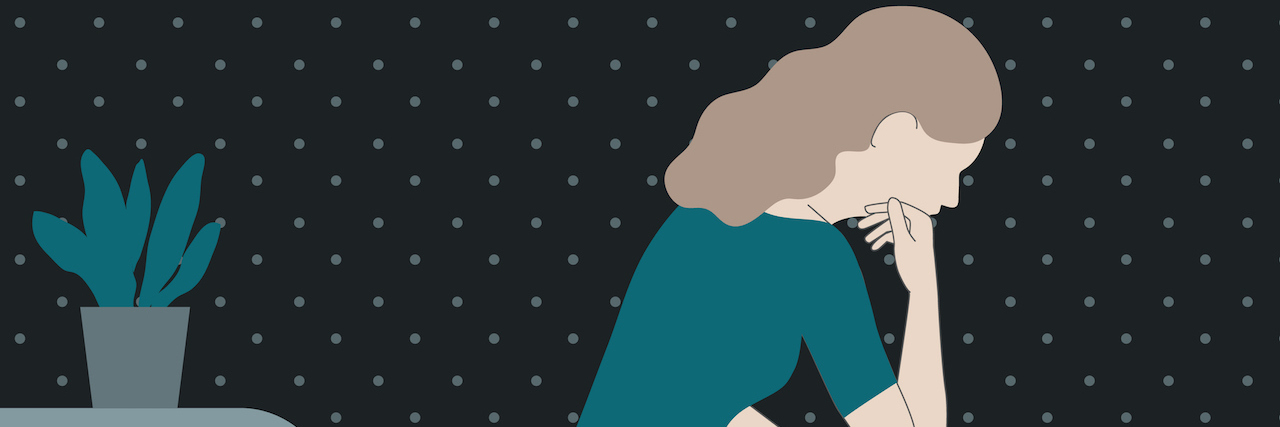Grief. I first learned what the word meant when I was 11. My grandad had passed away, the first person I remember losing to death. My grandmother didn’t deal with grief well — “he” made her cry, he made her hate and he made her turn to drug abuse to deal with the hole left within her. Unsurprisingly, morphine couldn’t fill a hole, only make it more bearable. It’s wasn’t until I became sick that I learned a whole new meaning of grief, not loss of a loved one but rather loss of yourself.
We often hear people talk about the stages of grief, like the stages of schooling. But what about those who don’t graduate school? What about those who can never escape the grasp of grief, because “he” never leaves? What do we do when the only one to remind us of who we were is grief? I haven’t found the answers to these questions yet; I’m not sure anyone has. Perhaps we each have our own answers. But I do know these questions are very personal to me: because when you’re chronically ill, you can’t escape grief.
Grief is the man standing in the doorway as you sleep, the man following you home. Grief is a never-ending reminder. Grief is bad. Grief is good. Grief is learning. But who am I to decide what grief is? I’m just far too familiar with him.
I’m not getting any better, I’m getting worse. And I think the hardest part is not knowing. The needle enters my vein. This has happened many times before — blood test after blood test but to no avail. Doctors still have no idea what’s wrong with me. Is it all in my head? Am I dying? Will I ever get better? But no matter how much I ask myself, I never get answers.
Illness took a lot from me — my schooling, my friends, my ability to walk properly, joy and much more. Sickness took myself, who I used to be, who I wanted to be. Life sometimes feels like an insurmountable challenge, a test of who I am and who I will be. Illness is fear. Illness is grief.
I grieve for who I used to be, for the joy of running, for my social life, for a time before I saw doctors more than my friends. I grieve for who I am, who is not what I imagined for myself. I grieve for who I wanted to be, for my hopes and dreams, the phantom aspirations of a young girl. Illness is fear. Illness is grief.
Life wasn’t simple before this, but it sure was easier. At least I could walk my dog, run, live without fear of crashing at the end of the day. For some, my life would be simple. But a simple life is not simple when your mind is a war zone and you can barely function. A simple life is not simple when you have to consciously force your legs to move, when you use all your energy going to the store in your wheelchair, when you’re no longer who you used to be and most importantly, when you’re sick. My simple life is far from simple.
Illness is fear. Illness is grief. But illness is also hope. Hope that I’ll get better, hope I’ll have a good day today, hope I can eat without feeling nauseous and hope I get a diagnosis. But still, with all this hope, illness is grief.
I’ve learned a lot from what life has thrown at me. I’ve learned my limits, the ever-changing boundaries of my mind and body. I’ve learned to fall out of love with life – and then fall in love again. My physical illnesses have forced me to make friends with my mental illnesses, but not to fall for their traps. I’ve learned who I am, at least who I am at the moment. So although illness is fear, grief and hope, it’s also learning.
Life is no longer living when you’re just surviving, when grief is your only friend.
And no, your well wishes won’t make me better.
Getty image by image_jungle

